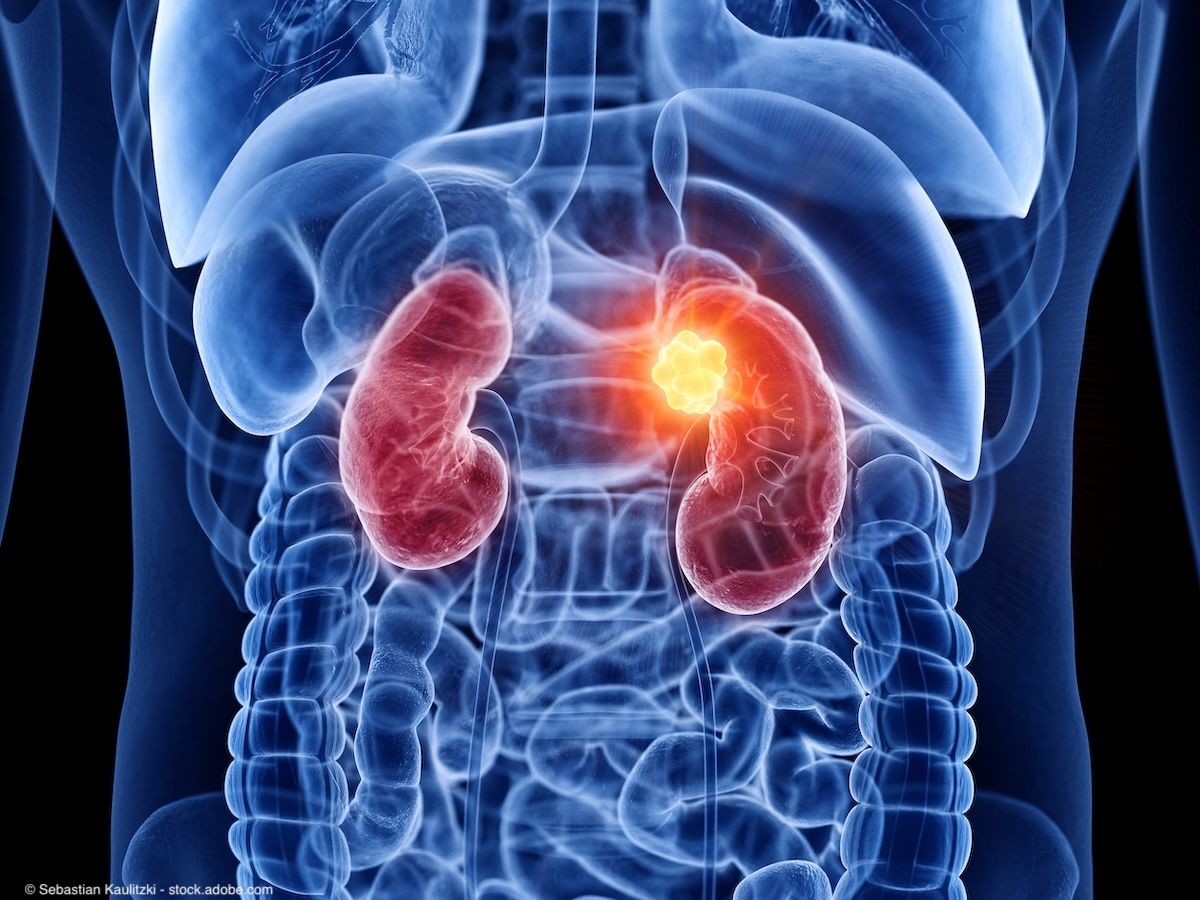News
Article
NPX887 being explored in HHLA2+ solid tumors, including RCC
Author(s):
The study plans to enroll 144 patients with solid tumors, including RCC, non-small cell lung cancer, colorectal carcinoma (CRC), and other malignancies known to express HHLA2/B7-H7.
The first patient has been dosed in a phase 1a/1b study of NPX887 (NCT06240728) for the treatment of patients with solid tumors expressing HHLA2/B7-H7, including renal cell carcinoma (RCC), according to a news release from NextPoint Therapeutics, the developer of the therapy.1
Primary and final completion of the study is expected in 2027.

“The launch of NPX887, our second clinical program targeting the HHLA2/B7-H7 axis, marks an important step in broadening our therapeutic targeting of this novel pathway to reactivate the immune system to fight cancer,” commented Leena Gandhi, MD, PhD, chief medical officer of NextPoint Therapeutics, in the news release.1 “Together with NPX267, our first clinical program targeting the KIR3DL3 receptor for HHLA2, we are well-positioned to interrogate how best to exploit this pathway to effectively treat patients whose tumors express HHLA2 as an independent checkpoint of tumor-immune response from PD-L1. Our goal for both clinical programs is to leverage HHLA2 as a biomarker to enable precision selection of patients most likely to benefit. Both NPX267 and NPX887 have the potential for monotherapy benefit in selected patient populations.”
The open-label, multicenter trial of NPX887 will consist of a dose escalation and dose expansion stage to assess the tolerability, pharmacokinetics, immunogenicity, and biomarker-based selection of NPX887 in patients with solid tumors. Phase 1a of the study will determine a recommended dose level for phase 1b. Phase 1b will then include more participants to further assess the preliminary efficacy and activity of the treatment across multiple indications.
In total, the study plans to enroll 144 patients with solid tumors, including RCC, non-small cell lung cancer, colorectal carcinoma (CRC), and other malignancies known to express HHLA2/B7-H7 in phase 1a of the study. In phase 1b, the study will assess treatment in patients with clear cell RCC, lung adenocarcinoma, or CRC. NPX887 will be administered to patients via intravenous infusion every 3 weeks until disease progression or patient withdrawal for up to 2 years.
Inclusion criteria for the trial includes having a histologically or cytologically confirmed recurrent, metastatic solid tumor refractory to standard of care therapy for one of the enrolling indications, evaluable disease as measured by RECIST v1.1, an ECOG performance status of 0, 1, or 2, and a willingness to use highly effective contraceptive measures throughout the trial. Patients are excluded from the study if they have had treatment with systemic anticancer treatment less than 14 days prior, limited-field radiotherapy less than 7 days prior, or extended-field thoracic radiotherapy less than 8 weeks prior to treatment with the study drug, history of grade 3 immune-related pneumonitis or colitis, discontinuation of prior immunotherapy due to toxicities, or a known autoimmune disease requiring immunosuppressive treatment.
The primary outcome measures for the study include the incidence of dose limiting toxicities, adverse events, and discontinuations, dose interruptions, and dose reductions. Secondary outcome measures include the area under the concentration curve, maximum plasma concentration, half-life in blood circulation, and immunogenicity of NPX887, as well as overall survival.
Primary and final completion of the study is expected in 2027.
In addition to the study of NPX887, NextPoint Therapeutics has also initiated a phase 1a/1b study (NCT05958199) of NPX267 in patients with metastatic solid tumors known to express HHLA2, including RCC, urothelial carcinoma, and prostate cancer, among other indications.
The first patient in the study of NPX267 was dosed in August 2023.3 In total, the study plans to enroll 131 patients to explore the safety and preliminary efficacy of NPX267 in patients with solid tumors. Primary and final completion of the trial is expected in 2026.4
References
1. NextPoint Therapeutics announces first patient dosed in Phase 1a/b clinical trial of NPX887, a novel therapeutic targeting HHLA2 to reactivate exhausted T and NK cells in HHLA2+ solid tumors. News release. NextPoint Therapeutics. February 20, 2024. Accessed March 1, 2024. https://www.businesswire.com/news/home/20240220381798/en/NextPoint-Therapeutics-Announces-First-Patient-Dosed-in-Phase-1ab-Clinical-Trial-of-NPX887-a-Novel-Therapeutic-Targeting-HHLA2-to-Reactivate-Exhausted-T-and-NK-Cells-in-HHLA2-Solid-Tumors
2. A study of NPX887 for participants with solid tumors known to express HHLA-2/B7-H7. ClinicalTrials.gov. Last updated February 8, 2024. Accessed March 1, 2024. https://clinicaltrials.gov/study/NCT06240728
3. NextPoint Therapeutics announces first patient dosed in phase 1a/b clinical trial of NPX267, a novel therapeutic targeting KIR3DL3 to reactivate exhausted T and NK cells in HHLA2+ solid tumors. News release. NextPoint Therapeutics. August 17, 2023. Accessed March 1, 2024. https://www.businesswire.com/news/home/20230817532951/en/NextPoint-Therapeutics-Announces-First-Patient-Dosed-in-Phase-1ab-Clinical-Trial-of-NPX267-a-Novel-Therapeutic-Targeting-KIR3DL3-to-Reactivate-Exhausted-T-and-NK-Cells-in-HHLA2-Solid-Tumors
4. A study of NPX267 for subjects with solid tumors known to express HHLA-2. ClinicalTrials.gov. Last updated January 8, 2024. Accessed March 1, 2024. https://clinicaltrials.gov/study/NCT05958199
Newsletter
Stay current with the latest urology news and practice-changing insights — sign up now for the essential updates every urologist needs.

















